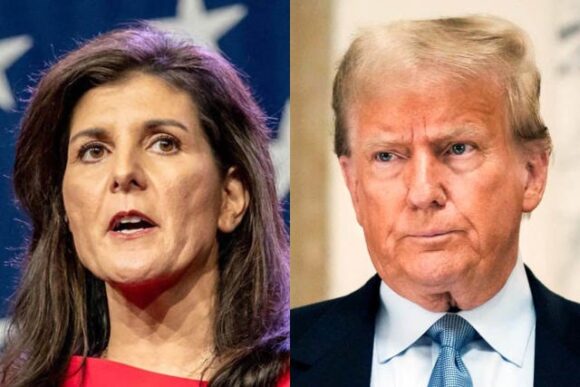Dear Commons Community,
Adam Nagourney, a political reporter for The New York Times, does a fine analysis today of the state of the Republican primary and speculates on what the future holds for the candidates.
Below is the entire piece.
Tony
——————————————————————————–
The New York Times
The early race for 2028
By Adam Nagourney
The race for the Republican presidential nomination is not quite over — notwithstanding what Donald Trump and many Republican leaders have asserted since Trump’s victory in New Hampshire on Tuesday. Nikki Haley is still running and attacking the former president as she moves around South Carolina, which will hold its Republican primary on Feb. 24.
But for all that, it’s never too early to cast an eye on another competition playing out in the background: the early race for the 2028 Republican presidential nomination, in particular the contest between Trump’s two strongest rivals, Haley and Ron DeSantis.
How Haley, the former United Nations ambassador, and DeSantis, the governor of Florida, emerge from this contest, and particularly how they manage their relations with Trump, could have significant bearing on how they are positioned to run in 2028, should they decide to jump into the presidential pool again, as they are widely expected to do.
If Trump secures the nomination and wins in November, the 22nd Amendment says he will have to leave the White House after the 2028 election. If he loses in 2024, he could run again in 2028; at that point, though, he would be a two-time loser.
For DeSantis, who made an early departure from the race for president, the verdict is mostly set. For Haley, who is soldiering along in South Carolina, it is still being decided.
DeSantis stepped out of the race early in the hopes of not antagonizing Trump and his supporters. Throughout the primary, he ran as a Trump-like candidate, and depending what happens over the next four years, he could present himself the same way in 2028.
“Right now, it will be remembered that he was a loyal soldier for Trump,” said Mike Murphy, a Republican consultant. “He’ll be new and improved. I see that route.”
But DeSantis hardly distinguished himself as a candidate. He rode into the race on a wave of expectations, heralded as a nimble candidate with a strong record as governor. Instead, he often seemed awkward and uncomfortable. His campaign was marked by infighting and mistakes. DeSantis left the race diminished, after finishing nearly 30 points behind Trump in Iowa.
Those are the kinds of things Republican donors and elected officials will remember when surveying the 2028 field.
Haley has been a stronger candidate. In New Hampshire, she appealed to independent and moderate voters, which would certainly help her in a general election. “In the field of mediocrities that ran against Trump, she rose to the top,” Murphy said. “She is a better athlete than the rest of them.”
But she has struggled to win the support of Republicans — you know, the voters who choose the Republican presidential nominee. And in pushing ahead with her campaign, Haley is taking two risks that could complicate a return in 2028.
For one, with her attacks on Trump, including describing him as too old, she has antagonized the former president and his supporters. Today, she called him “totally unhinged.”
Second, she is now the subject of withering, and potentially damaging, attacks from Trump, who has challenged her credentials as a conservative Republican and threatened to blacklist donors to her campaign.
It’s probably too soon to judge whether Haley has irrevocably crossed the line with Trump and his supporters. But she is certainly close to having done so.
For the political futures of both Haley and DeSantis, what matters most is whether the party is still in the throes of Trump in 2028. If Trump loses in 2024, and brings Republicans in congressional and state-level races across the country down with him, Haley — and to a lesser extent DeSantis — could benefit from buyer’s remorse.
“At that point, there could be a reckoning, with the party acknowledging that the Trump train ran out of track,” said Mark McKinnon, a longtime adviser to Republican presidential candidates. “And then it would be time for a new engineer. Both Haley and DeSantis would be able to say, ‘I warned you.’”
Well, Haley more than DeSantis. He endorsed Trump when he dropped out of the race, trying to position himself as the future inheritor of the Trump mantle.
And if Trump wins — well, that could be a problem for both of them, no matter what kind of scrambling DeSantis did at the end. “They’ll spend more time in green rooms than the White House,” McKinnon said.












